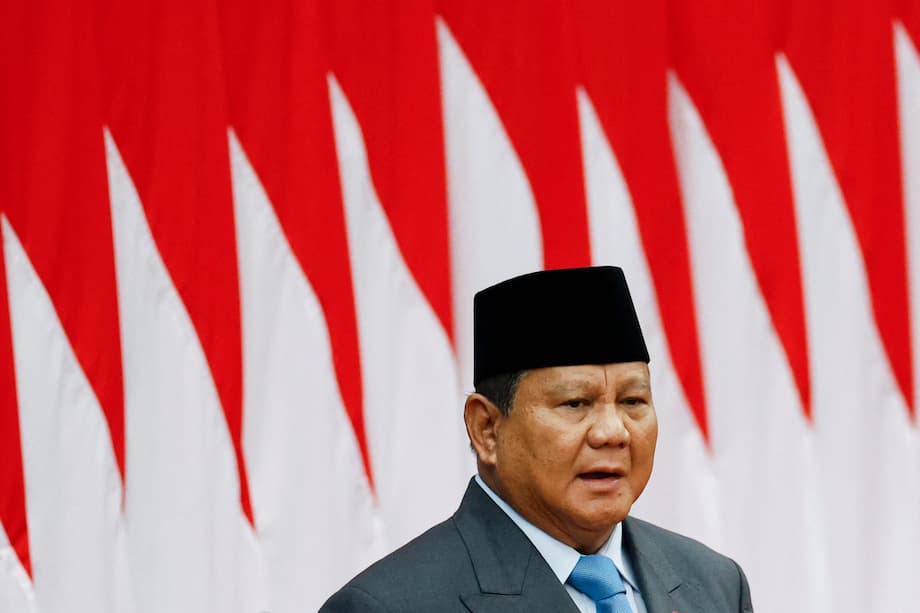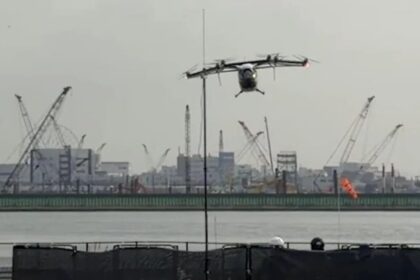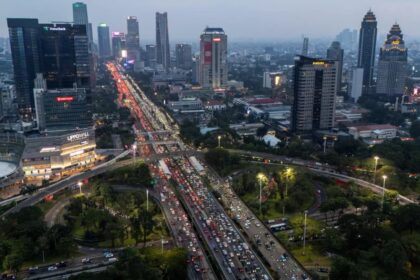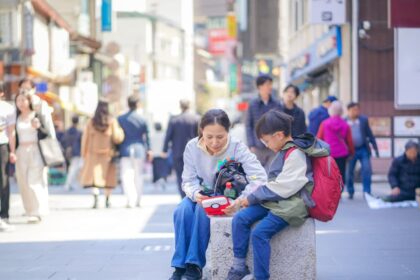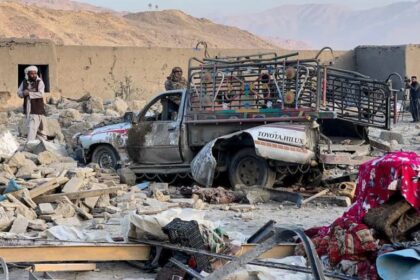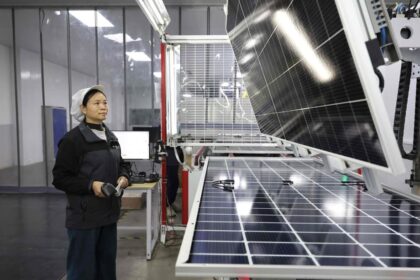Indonesia’s Military Expansion: A New Era Under President Prabowo
Indonesia, the world’s third-largest democracy and Southeast Asia’s most populous nation, is undergoing a sweeping transformation of its military under President Prabowo Subianto. Since taking office, Prabowo—a former special forces commander with a controversial past—has launched the largest military expansion and restructuring since the authoritarian era of Suharto. This bold move, justified as necessary for national security and development, has ignited fierce debate over its implications for democracy, civil-military relations, and regional stability.
- Indonesia’s Military Expansion: A New Era Under President Prabowo
- Why Is Indonesia Expanding Its Military?
- From Battlefield to Rice Fields: The Military’s New Civilian Roles
- Legal Changes: The Return of ‘Dwifungsi’?
- Supporters’ Arguments: Security, Efficiency, and National Unity
- Critics’ Concerns: Democratic Erosion and Inefficiency
- Historical Echoes: The Shadow of Suharto’s New Order
- Regional and Geopolitical Implications
- Papua and Human Rights: A Flashpoint
- What’s Next for Indonesia’s Democracy?
- In Summary
At the heart of the controversy is the unprecedented scale and scope of the expansion. Prabowo’s administration has established over 100 new army battalions, with plans for 500 more in the next five years, alongside new special forces and marine units. The military’s role is also extending deep into civilian life, from agriculture and pharmaceuticals to social welfare programs. Critics warn that these changes risk reviving the military’s old dual-function (dwifungsi) doctrine, blurring the line between civilian and military spheres, and undermining hard-won democratic reforms.
Why Is Indonesia Expanding Its Military?
President Prabowo has repeatedly emphasized the need for a strong military, arguing that “no nation can be independent without one.” In a world marked by rising geopolitical tensions—from the South China Sea to Europe—he frames the expansion as essential for safeguarding Indonesia’s vast archipelago, deterring external threats, and responding to natural disasters.
At a high-profile ceremony in West Java, Prabowo inaugurated dozens of new military units, including six new regional army commands, 14 naval commands, and three air force commands. He declared, “The world is full of uncertainty, and even if we dislike war, wars are happening everywhere.” The defense budget for 2025 has soared to nearly $15 billion, a 37–50% increase over the previous year, funding not only new units but also advanced weapons acquisitions such as Turkish KAAN fighter jets and ballistic missiles.
Supporters argue that this expansion is overdue. Indonesia’s military, known as TNI, has long lagged behind regional peers in modernization and readiness. The new structure aims to distribute military presence beyond Java, enhancing rapid response capabilities across the archipelago’s thousands of islands. Proponents also highlight the military’s potential to assist in disaster relief and development, especially in remote areas where civilian infrastructure is weak.
From Battlefield to Rice Fields: The Military’s New Civilian Roles
Perhaps the most contentious aspect of Prabowo’s agenda is the military’s growing involvement in civilian affairs. The new battalions are tasked not only with defense but also with supporting agriculture, animal husbandry, and food security. The government claims these units will not receive combat training and are intended to help boost food production and rural development.
In a striking move, the military has also been authorized to manufacture medicines for public distribution. Under an agreement signed by the defense minister and the food and drug agency, army, navy, and air force laboratories—previously supplying only soldiers—will begin producing drugs for the general public, aiming to cut costs and curb the flow of illegal medicines. Mass production is set to begin soon, with medicines distributed through 80,000 state-backed cooperatives launched by Prabowo.
Additionally, the military is involved in running free school meal programs, building hospitals in conflict areas such as Papua, and participating in land reclamation from expired palm plantations. These initiatives are presented as efforts to improve public welfare and bypass inefficient civilian bureaucracies.
Legal Changes: The Return of ‘Dwifungsi’?
Central to the military’s expanded role is a controversial revision of Indonesia’s armed forces law, passed by parliament in March 2025. The new law allows active-duty military personnel to hold more civilian posts—expanding from 10 to 14 government agencies, including the attorney general’s office, state secretariat, and counterterrorism agency. It also extends the retirement age for officers.
This legal shift has alarmed civil society groups, rights activists, and democracy advocates. They see echoes of the Suharto era, when the military’s dual-function doctrine enabled it to dominate politics, business, and daily life for over three decades. After Suharto’s fall in 1998, reforms aimed to professionalize the military, restrict its role to external defense, and ensure civilian supremacy. The new law, critics argue, risks reversing these gains.
Andreas Harsono, senior Indonesia researcher at Human Rights Watch, explained, “President Prabowo appears intent on restoring the Indonesian military’s role in civilian affairs, which were long characterized by widespread abuses and impunity. The government’s rush to adopt these amendments undercuts its expressed commitment to human rights and accountability.”
Protests by students and democracy groups have erupted in Jakarta and other cities, though they have so far been small and quickly dispersed. Rights groups warn that embedding the military in civilian governance could lead to abuses of power, human rights violations, and political impunity.
Supporters’ Arguments: Security, Efficiency, and National Unity
The government and its supporters reject accusations of democratic backsliding. They argue that the military’s expanded role is necessary to address Indonesia’s unique challenges: a sprawling, diverse archipelago vulnerable to natural disasters, separatism, and transnational threats. Defense Minister Sjafrie Sjamsoeddin has stated that the amendments are needed to adapt to new forms of conflict, including cyber threats and terrorism.
Officials also claim that military involvement in pharmaceuticals and agriculture will lower costs, improve efficiency, and help cut out corrupt middlemen. The defense ministry insists that the military cannot interfere in civilian affairs and is only increasing its capacity to safeguard the nation’s territory and support development.
Some analysts note that the trend toward greater military involvement began under Prabowo’s predecessor, Joko Widodo, and that Prabowo is simply accelerating an existing policy. They point to the military’s role in disaster response and infrastructure projects as examples of its positive contributions.
Critics’ Concerns: Democratic Erosion and Inefficiency
Despite official reassurances, many observers remain deeply concerned. Human rights groups, democracy advocates, and some military analysts warn that the expansion risks entrenching the military’s influence over politics, policy, and the economy—often in areas where it lacks expertise.
Critics argue that dispersing military personnel across numerous small units and civilian roles weakens overall combat readiness and professionalization. They question the effectiveness of military-run farms and pharmaceutical ventures, citing past failures and inefficiencies. Some warn that the military’s growing presence in civilian life could stifle dissent, undermine civilian institutions, and create a culture of impunity.
Usman Hamid, executive director of Amnesty International Indonesia, said, “This is a symptom of how the government has shifted into authoritarianism.”
Financial concerns are also mounting. The massive restructuring and expansion have driven up defense spending, raising questions about sustainability and opportunity costs. Some analysts argue that Indonesia should invest more in high-tech warfare and external defense, rather than expanding territorial commands and social programs.
Historical Echoes: The Shadow of Suharto’s New Order
For many Indonesians, the current developments evoke memories of Suharto’s New Order regime (1966–1998), when the military was omnipresent in politics, business, and daily life. The doctrine of dwifungsi justified the military’s dual role in security and civilian affairs, enabling it to suppress dissent and maintain order during crises.
After Suharto’s fall, Indonesia embarked on a reformist path, seeking to build a military that was externally focused, politically neutral, and accountable to civilian authority. The 2004 military law restricted active-duty officers from holding civilian posts and aimed to professionalize the armed forces. The recent amendments and expansion, critics say, risk undoing these reforms and normalizing the military’s presence in governance.
General Agus Subiyanto, the current military chief, has argued that the old law is outdated and that the military must adapt to new challenges. However, rights groups and pro-democracy activists fear a return to the abuses and impunity of the past.
Regional and Geopolitical Implications
Indonesia’s military expansion is not occurring in a vacuum. The country sits at the crossroads of major geopolitical rivalries, with the South China Sea dispute, rising Chinese assertiveness, and global instability shaping its security calculus. Prabowo’s government argues that a stronger military is essential to deter external threats and maintain regional stability.
However, some analysts warn that the expansion could spark a security dilemma, where Indonesia’s defensive measures are perceived as aggressive by neighbors, potentially unsettling Southeast Asia’s delicate balance. The integration of advanced technologies and the shift from Java-centric to distributed deployments underscore the strategic stakes.
An editorial in The Jakarta Post cautioned, “The expansion risks sparking a security dilemma, where defensive measures are misperceived as aggressive, potentially unsettling Southeast Asia’s delicate balance.”
To avoid regional tensions, experts recommend that Indonesia pursue defense diplomacy, confidence-building measures, and non-provocative protocols to reassure neighbors and maintain harmony.
Papua and Human Rights: A Flashpoint
One of the most sensitive aspects of the military’s expansion is the deployment of new special forces units to Papua, a restive region with a long-running independence movement. Indonesian forces have been accused of human rights abuses and heavy-handed tactics in Papua, fueling local resentment and international criticism.
The government argues that the new units are needed to maintain order and provide humanitarian assistance. However, rights groups fear that increased military presence will exacerbate tensions and lead to further abuses. The military’s involvement in building hospitals and distributing medicines in conflict areas is seen by some as an attempt to win hearts and minds, but also as a means of consolidating control.
What’s Next for Indonesia’s Democracy?
Indonesia’s military expansion under President Prabowo marks a pivotal moment for the country’s democracy and civil-military relations. The government’s ambitious agenda is reshaping the armed forces, expanding their role in society, and testing the boundaries between civilian and military spheres.
Supporters see the changes as necessary for national security, development, and resilience in a turbulent world. Critics warn of democratic erosion, inefficiency, and the risk of returning to an era of military dominance. The outcome will depend on how Indonesia balances the need for security with the imperative of preserving democratic norms, civilian oversight, and human rights.
In Summary
- President Prabowo Subianto is leading Indonesia’s largest military expansion since the Suharto era, establishing hundreds of new units and increasing the defense budget by up to 50%.
- The military’s role is expanding into civilian sectors, including agriculture, pharmaceuticals, social welfare, and land management, sparking concerns about democratic backsliding and inefficiency.
- A controversial new law allows active-duty military personnel to hold more civilian posts, raising fears of a return to the military’s dual-function doctrine (dwifungsi) from the authoritarian past.
- Supporters argue the expansion is necessary for national security, disaster response, and development, while critics warn of human rights abuses, political impunity, and weakened military professionalism.
- The deployment of new special forces units to Papua and the military’s involvement in public health and education highlight the blurred lines between defense and civilian life.
- Observers caution that Indonesia’s reforms since 1998 are at risk, and the country’s future will hinge on maintaining civilian supremacy, democratic accountability, and regional stability.


